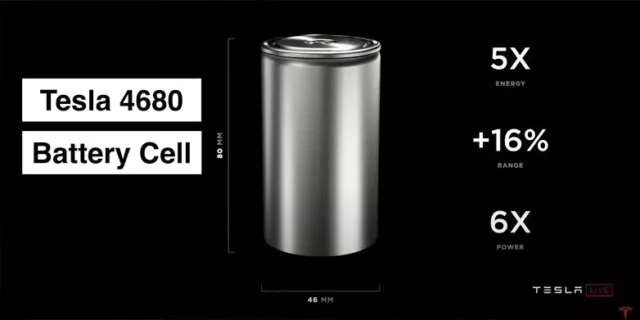
This is not investment advice. The author has no position in any of the stocks mentioned. Wccftech.com has a disclosure and ethics policy.
Tesla is often touted as the automaker with the highest level of de-risked supply chains. Today, we’ve received another confirmation of this evolving phenomenon via Piper Sandler’s Tesla-focused investment note, where the analyst Alexander Potter takes pains to note Tesla’s minimal reliance on China for its bespoke 4680 battery cells.
For the benefit of those who might not be aware, Tesla’s 4680 battery cells are shaped like a cylinder bearing a diameter of 46mm and a height of 80mm. These cells feature a tabless design, where the electrodes span the entire length of a cell’s margins, reducing current concentration and improving thermal management. Moreover, these cells come paired with higher energy densities and lower overall costs.
Coming back, Piper Sandler’s Potter believes that «Tesla is the only car company that is trying to source batteries, at scale, without relying on China.» The analyst goes on to note:
«In fact, for in-house ‘4680’ batteries, China reliance is already approaching 0%.»
Bear in mind that Panasonic is currently a key manufacturing partner for Tesla when it comes to its 4680 battery cells. However, the EV giant is planning to localize at least a portion of the cell’s total production at Giga Nevada via its planned $3.6 billion plant expansion.
Potter then goes on to declare that «eventually, Tesla will be making its own cathode active materials (CAM), refining its own lithium, building its own anodes, coating its own electrodes, assembling its own cells, and selling its own cars.»
According to the Piper Sandler analyst, no other US company can «make similar claims.»
Of course, Potter does concede that there is no way to completely shield American supply chains from China-based vulnerabilities in the short-run, but appreciates the fact that Tesla at least has an expansive plan.
Meanwhile, Tesla investors are currently glued to the highly anticipated developments of next week, when Tesla is expected to debut its unsupervised FSD on the Model Y in Austin, Texas, concurrent with the launch of between 10 and 20 robotaxis. By the end of 2025, the EV giant intends to roll out this service to a number of US cities.









